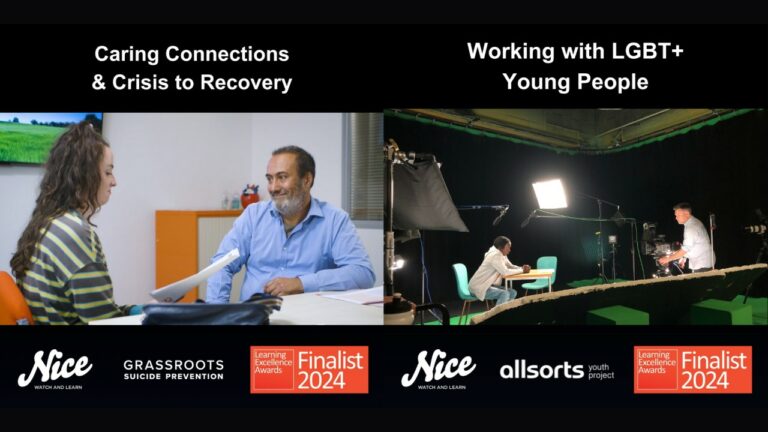Wednesday was the Learning Technologies Summer Forum at Olympia. After enjoying the Learning Technologies Exhibition back in January, I was excited for another LT event, particularly since I’ve now been working in e-learning for nearly 8 months, it was great going knowing a little more about the ‘e-learning world’ than I did back in January.
My mission this time was to try and watch some more of the seminars, as well as enjoy the atmosphere, decorated stalls and, of course, the free giveaways.
Hello, we are the Garmin generation: where are we going with long term knowledge?
I started the day off by attending the Mind Click talk given by the Director Dr Richard Hyde.
It was a theoretical start to the day where we were asked to consider questions such as ‘Should we be teaching skills or knowledge?’
Richard Hyde explained that with such major technological developments in the last few decades, most notably the internet, we have had to consider what kind of impact is this having on our ability to save, process and retrieve long term knowledge.
The talk was filled with some great facts. For example, did you know that 50% of people will leave a website if it isn’t loaded in 3 seconds?
Both sides of the debate on what this technology is doing to our long term knowledge were discussed. We looked at Daisy Christodoulou’s concerned views expressed in the Seven Myths of Education and Stephen Fry’s more positive outlook.
However, we were then informed that a famous and respected philosopher has warned that this new invention would produce forgetfulness.
But, before we descended into total panic, Richard Hyde revealed that the philosopher that had given this warning was in fact Socrates and the invention that was being discussed was writing.
So maybe we don’t need to all panic just yet? Phew.
Get gaming in Storyline!
Then it was on to Sponge UK’s Managing Director, Louise Pasterfield.
We were asked ‘what is a game’?
In a nicely topical World Cup link, we considered the ‘beautiful game’. We looked at how football is a game because there is a challenge, a risk, there’s engagement, entertainment, skill building and competition. And this is what game designers need to create; engagement, autonomy, mastery and progression.
To demonstrate learning through play three volunteers were asked to take part in three Sponge learning games.
First, a game where you had to test your fire knowledge against the clock.
Second, a game where you went ‘back in time’ to find the hazards to stop the fire which had broken out.
Third, a game where you had to structure staff correctly in the shape of business (think, a business family tree).
Together, these three games demonstrated well how valuable games are to learning.
E-learning in a multi-screen world.
Mark Weber, Director at Atticmedia, did a ‘thought piece’ on how e-learning had matured.
He noted that how we access technology is changing in general. There has been a 5% decline in PC sales and a 54% rise in tablet sales. We are using more and more social media: Facebook now has1.23 billion active monthly users. That’s a 5th of the world’s population!
There are new trends in how we access learning – we are now using an ever increasing amount of MOOCs (massive open online courses).
And of course, content is everywhere. Which means we are all constantly learning at work and we need to perfect the skills to search, filter and critique.
As an example of how to adapt your e-learning to the environment and technology available, Mark Weber discussed the project BBC Janala, which was a BBC World Service Trust program made to provide English language lessons to millions of people in Bangladesh.
BBC Janala operates through all mobiles, ‘Users dial 3000 from their mobile (at under 4p per minute) to receive audio or text lessons, or to access lessons via the web, WAP, TV and national newspapers’.
The aim of the project was to have 25 million users by 2017. However, this has already been achieved!
It’s a really great example of adapting learning to suit the technology available.
User Experience (UX) and the role of the visual designer.
Paul Thorpe, Head of Visual Design at LINE Communications spoke about the role of the Visual Designer in e-learning, saying: ‘The requirements of our clients and the expectations of our end users have become exponentially more demanding and the result is the need for proper UX thinking on every project’.
E-learning isn’t just about meeting the business’s needs, you also need to make sure you are meeting the user’s needs.
Paul Thorpe showed that User Experience design (UXD) is not optional. It is part of what we all do.
Final thoughts…
So to summarise extremely concisely what I learned at the forum:
Technology is changing. How we access technology is changing.
This is all great news for learning. We are able to develop more advanced, more engaging and more responsive learning.
And the Summer Forum was full of excellent examples of how learning companies are doing just that.
What were your highlights from the Learning Technologies Summer Forum?
Were there any other talks you really enjoyed?







